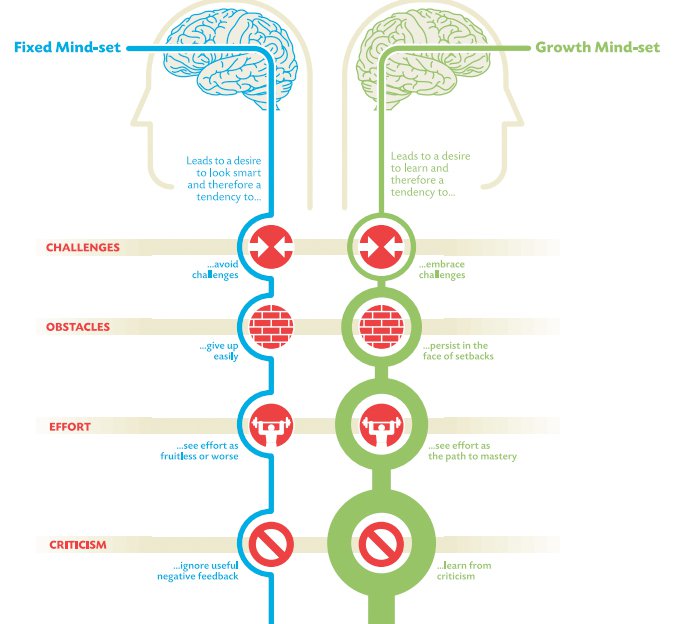#Leadership : Anyone can Use the ’20-Minute Rule’ I Learned From 5 years of Studying Rich People… “Your time is limited, so don’t waste it living someone else’s life.” – Steve Jobs, 2005 Stanford Commencement
In other words, don’t put your ladder on someone else’s wall. Pursue your own dreams. Not those of your parents, teachers, or some other significant influence in your life.

In order to make that ideal life a reality, you need to follow a process:
1. Define each specific dreamthat is part of your collage of your ideal life.
2. Build individual goals around each dream. In order to realize a given dream, it may, for example, require that you accomplish numerous goals.
3. Forge daily habits (I call them “goal habits”) that, when accomplished each day, bring you closer to achieving each individual goal.
As I learned from my five-year Rich Habits Study of people at both ends of the income spectrum, good habits are like snowflakes on the mountainside. You hardly notice the cumulative positive effects these habits have on your life on a daily basis, but over time, they create an avalanche of success.
When success hits, it appears to the untrained observer that the person became an overnight success. Of course, what the untrained observer does not realize is the fact that success was the byproduct of years and years of doing certain things every day.
Like this Article ? Share It ! You now can easily enjoy/follow/share Today our Award Winning Articles/Blogs with Now Over 2.5 Million Growing Participates Worldwide in our various Social Media formats below:
FSC LinkedIn Network: (Over 15K+ Members & Growing !) www.linkedin.com/in/frankfsc/en
Facebook: (over 12K) http://www.facebook.com/pages/First-Sun-Consulting-LLC-Outplacement-Services/213542315355343?sk=wall
- Google+: (over 800K)https://plus.google.com/115673713231115398101/posts?hl=en
- Twitter: Follow us @ firstsunllc
educate/collaborate/network….Look forward to your Participation !
Continue of article:
Building new daily habits isn’t difficult if you know what to do. It simply takes time and persistence. Consistency is the key. There is an easy trick that you can use in order to forge new goal habits to help you accomplish the goals behind the dreams that make up your ideal life: It’s called the 20 Minute Rule. The 20 Minute Rule is a simple three-step process.
Here’s how it works:
1. Define any new goal habit you wish to adopt.
2. Devote 20 minutes a day to that new goal habit.
3. Repeat that daily goal habit for a minimum of 30 days.
The new goal habit could be:
• 20 minutes a day of reading to expand your knowledge in a particular area that you need to become more proficient in, in order accomplish an individual goal (i.e. getting some license or certification).
• 20 minutes a day of networking to develop relationships with other successful individuals doing what you want to do. These relationships will open the door to opportunities that will help you accomplish your goals and realize your dreams.
• 20 minutes of listening to a podcast related to one or more of your goals to gather knowledge and insight you didn’t have before.
• 20 minutes of watching a TED talk in an area you need to become more knowledgeable in, in order for you to realize your individual goals.
• 20 minutes of developing a side business you hope to one day devote yourself to full-time.
In 30 days, your brain cells start talking to one another, forming a synapse. Once the synapse is formed, the tracks are laid for habit formation to occur. Over time, it becomes easier and easier to engage in the habit. At some point, between 66 and 256 days, according to the latest science on habits change, the habit becomes an automatic, unconscious behavior.
The brain loves habits. Habits conserve brain fuel and save the brain from work. But it does take repetition and time in order to get brain cells talking to each other. Thirty days gets the conversation going inside the brain.
Once the new goal habit sticks, then you can move on to the next new goal habit, following the same three-step process. In the course of a year, it is possible to add three or more new goal habits using this three-step process. In a few years you will have created dozens of new habits and your life will begin to improve as you accomplish one goal after another, and realize one dream after another.
Businessinsider.com | February 3, 2016 | Thomas C. Corley, Contributor









 Common sense would suggest that having ability, like being smart, inspires confidence. It does, but only while the going is easy. The deciding factor in life is how you handle setbacks and challenges. People with a growth mindset welcome setbacks with open arms.
Common sense would suggest that having ability, like being smart, inspires confidence. It does, but only while the going is easy. The deciding factor in life is how you handle setbacks and challenges. People with a growth mindset welcome setbacks with open arms.
